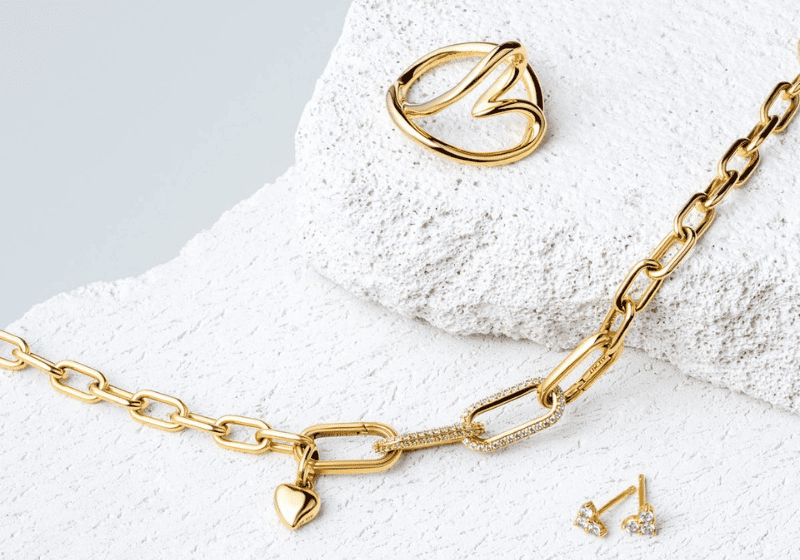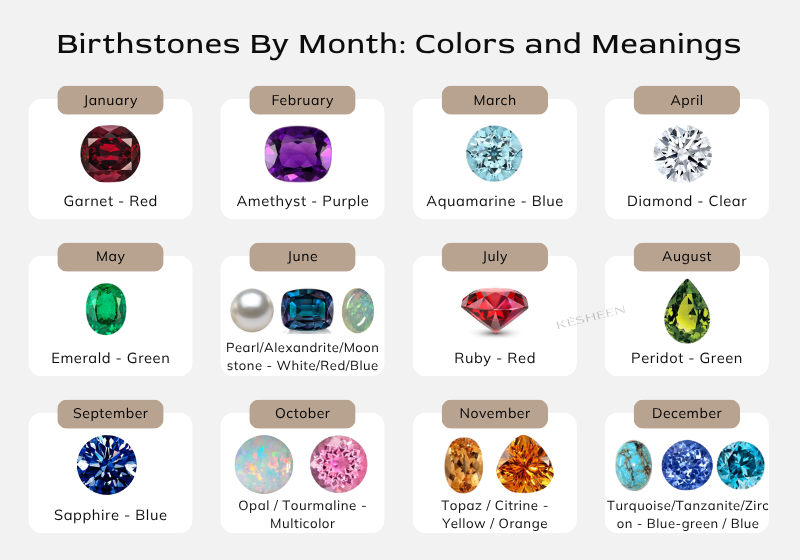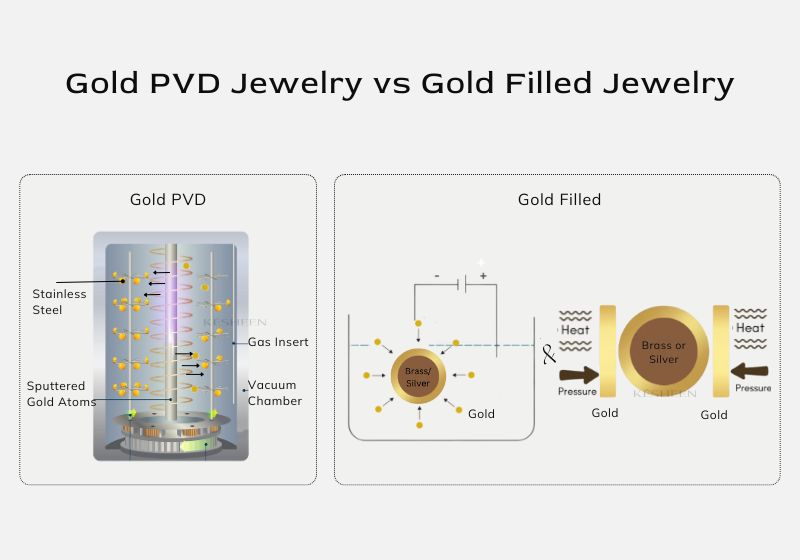Ever noticed a strange green stain on your finger after wearing jewelry? It’s a common worry for some types of jewelry. But here’s the good news: genuine, high-grade stainless steel does NOT turn the skin green. It’s one of the most reliable metals for everyday jewelry.
In this guide, we will further explain: does stainless steel jewelry turn skin green? What type of jewelry turns your skin green and those that don’t, so you can choose pieces that stay beautiful without leaving marks.
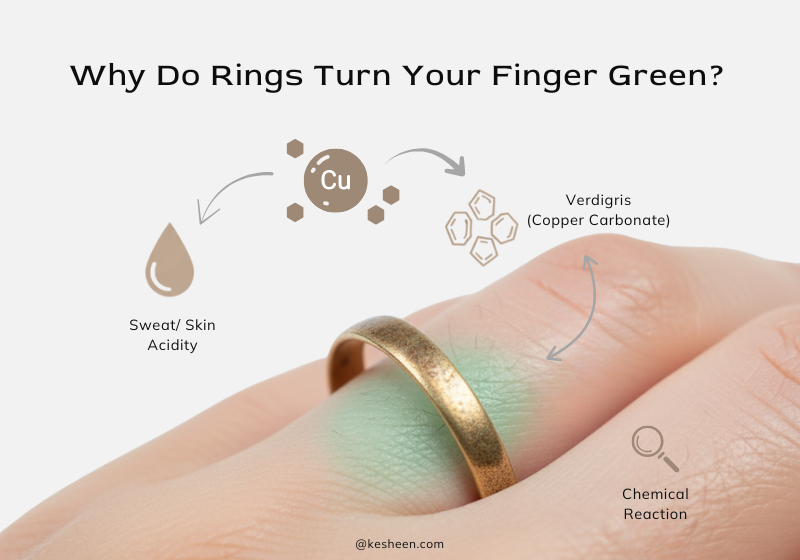
Why Does Jewelry, Especially Rings, Turn Your Finger Green?
Many people assume that when their skin becomes green from wearing jewelry, the jewelry is fake. Well, that’s not the issue. The problem is usually caused by chemical reaction, skin acidity, and environmental factors.
- Chemical Reaction
Green stain is liable to occur if the jewelry contains copper. When the jewelry comes in contact with water, sweat, or skin oils, the copper oxidizes and forms verdigris, a green compound that transfers onto the skin. Rings are particularly prone to this because constant friction and moisture exposure speed up this oxidation process.
- Skin Acidity and Environmental Factors
If you have naturally acidic skin, sweat heavily, or frequently use lotions & perfumes when your jewelry is on, it accelerates the oxidation process. Chlorine from swimming pools and saltwater water from the ocean can strip protective layers from jewelry, making oxidation happen faster, which results in green stains.
What Types of Jewelry Are Most Likely to Cause Your Skin to Turn Green?
Some metals react faster than others, making them more likely to create that unwanted green tint. These metals include:
- Copper
Copper is the most common culprit. Its high reactivity means it oxidizes quickly when exposed to moisture or skin acidity. This reaction forms a green patina that easily rubs off on the skin.
- Un-plated Brass and Bronze
Brass is an alloy of copper + zinc, and bronze is made of copper + tin. Both contain large amounts of copper, making them highly prone to oxidation. When left un-plated, they can discolor the skin within hours of wear. Thus, it’s important that a protective layer, like e-coating, is applied to them to reduce oxidation and prevent skin irritation.
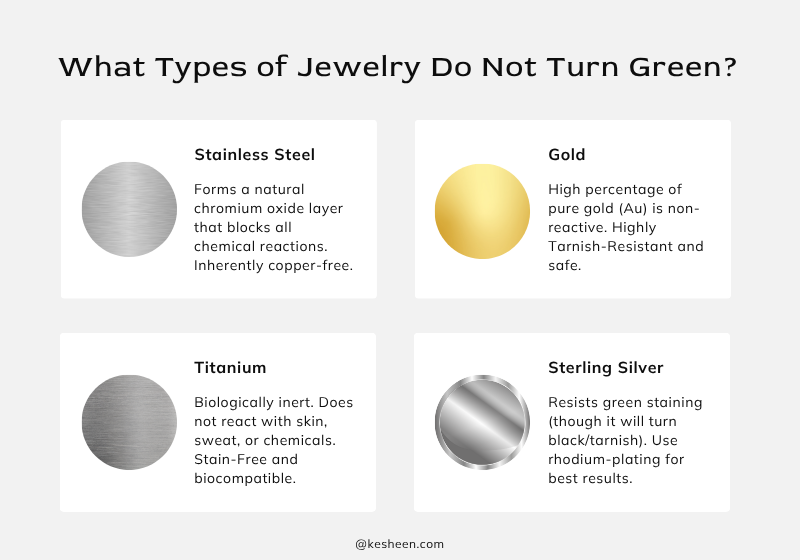
What Jewelry Does Not Turn Green?
Curious about what metals do not turn your finger green or cause skin irritation, here they include stainless steel, sterling silver, gold, and titanium, as explained below:
304 and 316L Stainless Steel
If you’ve ever wondered, is stainless steel a metal for jewelry? Yes—304 and 316L stainless steel are very reliable options for making jewelry that doesn’t turn green. 316L surgical steel jewelry is especially valued for its hypoallergenic and non-reactive properties, making it ideal for everyday wear.
Sterling Silver
Sterling silver rarely turns the skin green. While it can tarnish over time due to air and moisture, this tarnish is surface-level and can be cleaned with a cloth to restore its shine. With proper care and storage, sterling silver remains a safe and beautiful choice for long-term wear.
Gold
Gold does not oxidize, especially 24-karat gold (also known as pure gold), making it a clear answer to what jewelry does not tarnish. Higher karat gold (14K and above) contains minimal reactive metals, reducing the likelihood of skin discoloration.
Titanium
Titanium is hypoallergenic, lightweight, and exceptionally corrosion-resistant. It does not turn your skin green. This metal is famous among jewelry enthusiasts because of its long-lasting comfort and durability.
Does Stainless Steel Jewelry Turn Skin Green?
No, high-quality stainless steel does not turn your skin green. Stainless steel is made of iron, chromium, and a small amount of nickel, carbon, and other alloy metals. Chromium is the real hero here; it makes up at least 10.5% of the stainless steel and forms a thin, invisible layer on the surface to protect against corrosion.
Many people ask: is stainless steel jewelry nickel free? Does nickel turn skin green? Top-grade stainless steel contains low nickel that’s tightly bound within the metal, meaning it does not leach onto the skin or cause any form of reaction.
Does Gold-Plated Stainless Steel Turn Skin Green?
No, quality gold-plated stainless steel generally does not turn the skin green, especially when it uses modern coatings like PVD coating jewelry. It bonds the gold layer to the stainless steel base tightly at a molecular level, thereby preventing oxidation.
People often ask: does gold stainless steel tarnish? The answer is NO, because the stainless steel is already non-reactive and the PVD coating provides additional protection. This combination makes PVD gold jewelry maintain its luster for at least 1-2 years.
Does Stainless Steel Jewelry Change Color or Turn Black Over Time?
Pure, high-grade stainless steel is extremely resistant to rust, tarnish, and color change. Its rich chromium content forms a protective layer that keeps the jewelry bright, stable, and free from darkening.
Over time, some stainless steel jewelry pieces may slightly turn black, but they can be restored to its steel color by simply wiping them with a clean cloth.
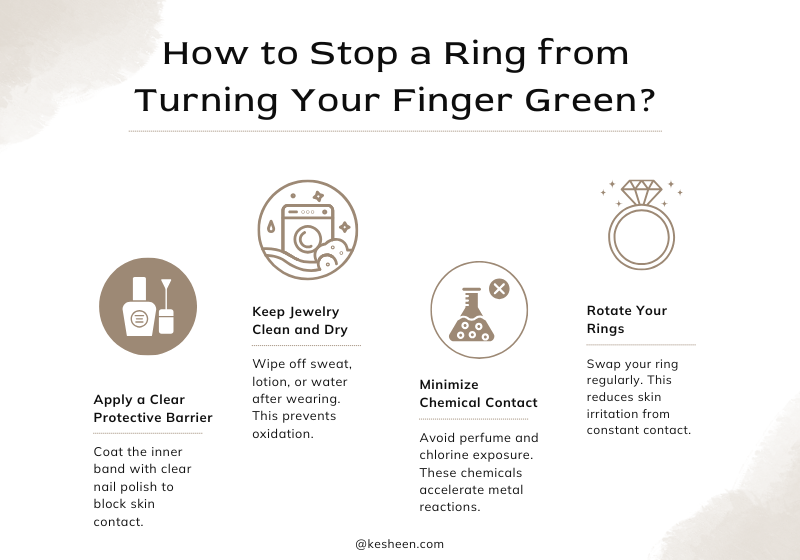
How to Stop a Ring from Turning Your Finger Green?
Green stains on fingers are usually caused by a reaction between certain metals and moisture, sweat, or chemicals. Below are easy solutions on how to stop ring from turning finger green:
- Apply a Clear Protective Barrier
Coat the inside of your ring with a thin layer of clear nail polish or jewelry shield to create a barrier between your skin and the metal. This automatically stops oxidation from happening.
- Keep Jewelry Clean and Dry
Moisture and sweat increase the reaction that causes green stains. Thus, it’s essential that you clean your rings regularly and avoid wearing them during swimming, showering, or exercising. And if you own durable jewelry you can wear in the shower, pool, or during workouts, clean and dry them thoroughly before storage.
- Minimize Chemical Contact
Lotions, perfumes, soaps, hand sanitizers, and cleaning agents can react with metals, especially brass or copper. This answers the questions: does brass jewelry turn skin green. To minimize chemical contact, apply skincare products first, then wear your jewelry once the skin is dry.
- Rotate Your Rings
Wearing the same ring everyday increases friction, moisture buildup, and oxidation. By rotating between multiple rings, you reduce stress on any single piece and give your skin time to breathe, lowering the chances of green stains.

How Do We Ensure Jewelry That Doesn’t Turn Green at Kesheen?
For small and growing jewelry brands, customer complaints about “green skin” can ruin your reputation fast. You don’t need a big budget to fix it. With smart material choices and reliable coating methods, you can offer affordable jewelry that stays beautiful and skin-safe. See how we produce jewelry that doesn’t turn green at Kesheen:
Using High-Quality Stainless Steel
We begin with using high quality materials, like 304 and 316L surgical steel. Wondering—does surgical steel turn green? No, it’s copper-free and inherently resistant to corrosion, thereby eliminating the root causes of green stains.
We also ensure that the metal’s nickel release rate meets stringent international requirements (like the EU Nickel Directive and REACH), and we provide test reports for added assurance.
Applying PVD Coating and High Polishing
We carry out meticulous and several rounds of polishing to ensure a flawless, non-porous surface before PVD application, which maximizes coating adhesion.
There’s often a debate between PVD coating vs electroplating. We use the advanced PVD coating for stainless steel because it provides superior protection, making the finish highly resistant to scratching, fading, and peeling. To learn more, dive into our detailed guide on PVD coating jewelry.
How Small Jewelry Brands Can Eliminate Customers’ Complaints about Green Skin?
Here are pro tips on how to eliminate customers’ complaints about green skin, whether you’re a new or small jewelry brand:
Choose Stainless Steel as a Core Material
Stainless is inherently non-reactive and does not turn skin green, thus eliminating the cost of customer returns, product replacements, and reputational damage caused by green stains. It can be used to make a collection of cheap jewelry that doesn’t turn green, giving you a strong marketing edge.
Use Proper Plating If Working with Brass
Brass is attractive and affordable but contains copper, which can react with the skin and make it green. If you choose to use brass, apply a top-quality plating like gold, rhodium plating, or e-coating over the brass base metal. However, if your brand targets baby jewelry or hypoallergenic-focused markets, consider avoiding brass as the core metal.
Key Takeaway
In summary, does stainless steel jewelry turn skin green? The answer is NO. In fact, it’s top-choice for those who want cheap jewelry that doesn’t turn green, yet glamorous and durable. However, it’s important that you partner with a reliable custom jewelry manufacturer to ensure you get stain-free products and protect customers’ satisfaction.
FAQs
No, sterling silver doesn’t turn your finger green. It can turn black (tarnish) over time though, but the tarnishing can be cleaned with a polishing cloth to restore its shine.
Sterling silver and rhodium-plated sterling silver are the most reliable. But while sterling silver tarnishes quickly, rhodium-plated sterling silver doesn’t. Rhodium is a very tough metal, so it prevents oxidation and any form of tarnishing.
Stainless steel is the cheapest metal if you need a reliable option that won’t turn the skin green. This makes it perfect for those on a budget but want safe products.
It depends on the specific metal used, not the absence of nickel. Jewelry made from brass or copper can oxidize and cause green discoloration. But high-quality nickel free stainless steel jewelry doesn’t cause green skin.
Yes, it will eventually turn skin green. Although, it can maintain its luster for months or a few years if properly plated and maintained. But when the thin gold plating wears out, the brass is exposed and oxidizes, causing the stain.
